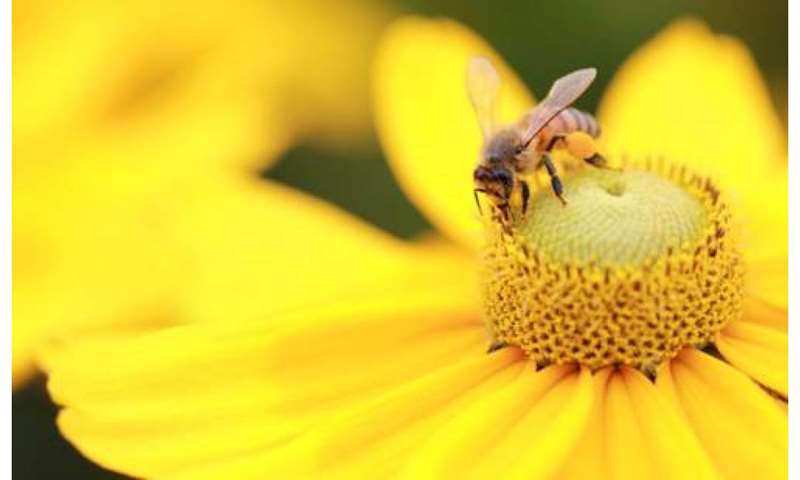
To Bee or Not to Be
With all due respect to Hamlet, a bit of a twist on the question posed by Shakespeare’s self absorbed worrywart takes us right into one of the hottest environmental issues of our time. And it’s got the word ‘existential’ written all over it. In some ways it’s just the latest chapter in that encyclopedic work, “The Law of Unintended Consequences.”
Researchers for Shell and Bayer came up with synthetic versions of nicotine to use as insecticides. The advantage: the new compounds had lower toxicity to humans and birds. However, over time it became clear that they were severely toxic to bees and were implicated in the widespread occurrence of “colony collapse disorder,” where the whole hive of these social insects simply goes belly up…and ceases to perform the crucial function of pollinating plants as they travel around gathering nectar.
Looking at the numbers, we can thank the busy bees for an entire alphabet soup of the ingredients in our daily diet; starting off with apples, almonds and apricots, through beans and brassicas, in the tropics we can count coconuts, coffee and chili peppers, and round out with watermelon and zucchini.
If you like numbers, experts estimate that cross- pollination is vital for at least 30 percent of the world’s crops and 90 percent of our wild plants to thrive. It does not take a genius to reach the conclusion that a threat to wild and domesticated plants on that scale is a threat to our continued existence on this planet. It’s really a simple equation: Less food plus no forests equals no future.
I recently had cause to harbor severe doubts about my own personal future, as I was running through the trees just ahead of an angry horde of honeybees. Apparently, as far as they were concerned, the getaway driver in shorts and a tank top was just as guilty as the 4-man crew in protective clothing doing the actual harvest of honey from their hive.
By way of explanation, part of our work on watershed restoration in the Nandamojo River Valley, south of Tamarindo, involves providing farmers with alternate sources of income from their land as an incentive to planting more trees. The aptly named “Bees for Trees” project helps with the hives, the extraction equipment and the distribution of the finished product. As I tried convincing my pursuers yesterday, I was just helping out with the transport and occasionally stealing a bite of freshly harvested comb.
Our version of the equation would be: More bees equals more trees plus more water and tons of honey from the forest- covered hills of our valley.
Hopefully Costa Rica will follow the lead of the European Union which, according to reports published recently, is poised to enact regulations that prohibit all insecticides that cause ‘acute risks to bees’. The timing could not be better both to ensure the continued growth of our Bees for Trees efforts and comes just when the countryside of Guanacaste bursts into bloom with a spectacular rainbow of flowering trees, most of which owe their continued existence to the diligent work of the busy little bee.
Francis Bacon compared the work of the bee to the musing of a philosopher: “it gathers its material from the flowers of the garden and of the field, but transforms and digests it by a power of its own. Not unlike this is the true business of philosophy; for it neither relies solely or chiefly on the powers of the mind, nor does it take the matter which it gathers from natural history and mechanical experiments and lay it up in the memory whole, as it finds it, but lays it up in the understanding altered and digested.”
In the case of the bees at least, the end result is oh, so sweet.

